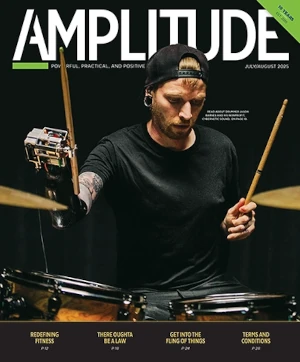
Acupuncture, tai chi, qigong, therapeutic massage, and five elements musical intervention were among the approaches evaluated in a new analysis of traditional Chinese medicine and its effects on quality of life in Chinese cancer patients. Image by Julie McMahon.
A meta-analysis of dozens of studies of traditional Chinese medicine (TCM) and other nonpharmacological interventions meant to improve patients’ quality of life affirms that these approaches, on the whole, helped alleviate depression, fatigue, pain, anxiety, insomnia, and gastrointestinal problems in Chinese cancer patients.
Specific interventions associated with traditional Chinese medicine, such as acupuncture and therapeutic massage, reduced gastrointestinal disruptions after surgery, and acupuncture also lessened fatigue in cancer patients, the researchers reported in the journal Oncotarget.
“The meta-analysis confirmed that traditional Chinese medicine enhanced global quality of life for Chinese cancer patients,” said University of Illinois (U of I) animal sciences and pathology professor emeritus Keith Kelley, PhD, an author of the study. Qiang (Quentin) Liu, a former student of Kelley’s and a U of I medical scholar who now is at Dalian Medical University in China, led the study with his colleagues Weiwei Tao and Xi Luo.
“We think this is the most comprehensive study of traditional Chinese medicine psychobehavioral interventions and the quality of life of cancer patients published to date,” Liu said. “Our findings will promote more investigations into how the body and mind are connected during disease development, and will facilitate better cancer treatments.”
Other interventions not associated with traditional Chinese medicine, including stress management, cognitive behavioral therapy, and physical training, also were found to improve quality of life in Chinese cancer patients, the researchers reported.
The team started with 6,500 studies published in journals in China and 23,000 studies from Western journals. All of the research focused on nonpharmacological interventions involving adult Chinese cancer patients in China. After eliminating duplicate studies, those with nonstandard measures, and those that failed to include control subjects or large enough sample sizes, the team ended up with a total of 67 studies, with 16 of them focused on traditional Chinese medicine.
The latter 16 studies did not include enough studies of tai chi and qigong to allow the researchers to come to meaningful conclusions about the specific effects of those interventions, Kelley said. The total number of cancer patients included in the analysis was 6,806.
“We were surprised by the limited number of papers on the use of traditional Chinese medicine psychobehavioral interventions for Chinese cancer patients that qualified for entry into this meta-analysis, particularly since the TCMs originated and are mostly practiced in China,” the researchers wrote.
“Traditional Chinese medicine has been practiced for 2,500 years in China,” Kelley said. “But what is the scientific evidence that it improves quality of life in cancer patients? This paper establishes that it does. Unfortunately, we were not able to determine what specific components of traditional Chinese medicine are the most effective.”
Kelley said he hopes the evidence that traditional Chinese medicine and other nonpharmacological interventions benefit cancer patients will prompt new interest in research aimed at understanding the physiological mechanisms at play.
This article was adapted from information provided by the U of I at Urbana-Champaign.



